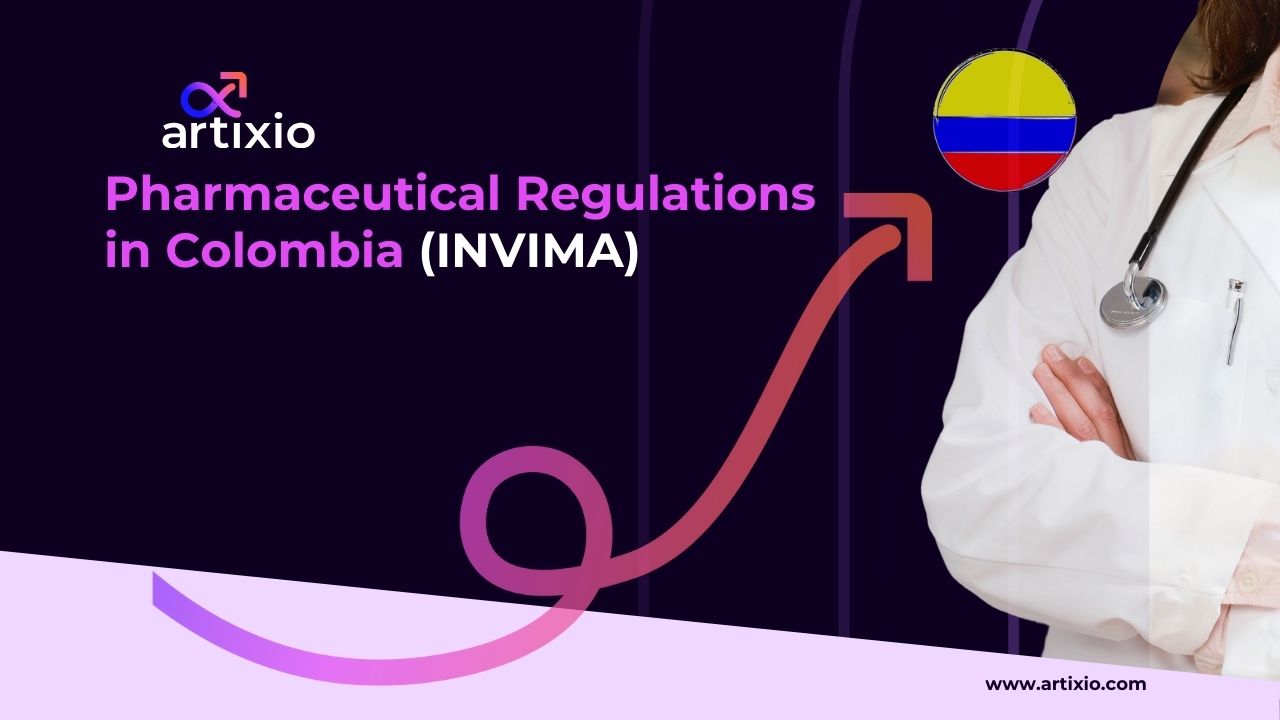Colombia stands out for its pharmaceutical industry’s ability to offer a diverse portfolio of products. Approximately half of the sales in this industry are derived from branded products, while the other half is attributed to generics. This reflects Colombia’s commitment to striking a balance between affordability and efficacy when it comes to healthcare solutions.
The nation boasts a remarkable number of about 400 pharmaceutical companies, demonstrating the vibrancy and competitiveness within the industry. Of these companies, 67% are local enterprises, highlighting the strength of domestic pharmaceutical manufacturing and innovation. The remaining 33% represent multinational corporations, bringing in valuable global perspectives and expertise.
This article outlines the pharmaceutical regulations and registration process in Colombia (INVIMA)
Pharmaceutical Regulations and Registration in Colombia (INVIMA)
Health Authority In Colombia:
Colombia’s regulatory body for pharmaceuticals registration and regulations is the National Food and Drug Surveillance Institute (INVIMA). INVIMA plays a vital role in safeguarding the safety, effectiveness, and quality of healthcare products. It takes charge of critical functions such as supervising clinical trials, managing registrations, and conducting post-market surveillance.
Legal Representation:
In Colombia, manufacturers and importers of pharmaceuticals must appoint an authorised representative. This representative serves as a bridge between the companies and the regulatory authorities, ensuring compliance with regulations and facilitating communication.
Colombia Product Classification:
In Colombia, pharmaceuticals undergo classification based on the level of potential risks they pose. This categorization helps to ensure appropriate regulatory oversight and safety measures.
- Pharmaceutical Class A: Over-the-counter painkillers.
- Pharmaceutical Class B: Prescription antibiotics.
- Pharmaceutical Class C: High-risk medications like immunosuppressants.
Pharma Labeling Requirements In Colombia
When it comes to labelling, it is crucial for pharmaceuticals in Colombia to include essential information. This includes the product name, details of the manufacturer, instructions for usage, important precautions, and regulatory information. It is mandatory for this information to be provided in both Spanish and the local language to ensure effective communication and understanding by users.
Clinical Trial Requirements For Pharma In Colombia
In Colombia, clinical trials undergo a rigorous approval process by INVIMA, the national regulatory authority for medicines. These trials must adhere to ethical and scientific standards to ensure patient safety and reliable results. Detailed documentation, such as the study protocol and informed consent forms, is crucial for the successful initiation and execution of clinical trials in the country.
Testing Requirements:
Pharmaceuticals go through a thorough and rigorous testing process to ensure that they are safe and effective for use. These tests involve several important aspects, including biocompatibility, stability, performance, and toxicity studies.
Foreign Testing and Recognition:
Colombia typically accepts testing data from foreign sources, but there might be additional requirements such as translation and validation. Notably, testing data from countries like the European Union (EU) and the United States (US) is often recognized in Colombia.
Pre-registration Requirements:
In Colombia, manufacturers and importers of pharmaceuticals are required to obtain an establishment license from the Instituto Nacional de Vigilancia de Medicamentos y Alimentos (INVIMA) before they can register their products. This license is an important step in ensuring compliance with Good Manufacturing Practices (GMP). Obtaining this license demonstrates the manufacturer’s or importer’s commitment to maintaining high manufacturing standards and delivering safe and effective products to the Colombian market.
Pharma Products Registration Process In Colombia:
During the registration process in Colombia, manufacturers or importers are required to provide a comprehensive set of technical and regulatory documents for their products. These documents provide detailed information about the composition, manufacturing process, labelling, and clinical data of the product. The purpose of this requirement is to ensure that the product meets the necessary standards and regulations for safety and efficacy. By providing these documents, manufacturers and importers enable the regulatory authorities to thoroughly evaluate the product before granting approval for it to enter the market. This process helps to safeguard public health and ensures that only compliant and well-documented products are available to consumers in Colombia.
Expedited Approval based on EU/US Approval:
Obtaining approval for a product in the European Union (EU) or the United States (US) can greatly facilitate the registration process in Colombia. This is because these jurisdictions are recognized for their stringent regulatory requirements and high standards. When a product is already approved in the EU or US, it indicates that it has undergone a thorough evaluation and meets rigorous criteria for safety and efficacy.
Import and Distribution Requirements:
In Colombia, it is mandatory for importers to obtain an import license from the National Institute for Food and Drug Surveillance (INVIMA). This license enables importers to legally bring their products into the country. Additionally, distribution centres in Colombia must adhere to Good Storage Practices (GSP). These practices are designed to maintain the quality and integrity of products during their storage and transportation.
List of Documents Required by INVIMA:
The specific documents required include:
- Product technical dossier
- Manufacturing process details
- Clinical trial data
- Proof of GMP compliance
- Labelling and packaging information
GMP Inspection Requirements:
Manufacturers and facilities are subject to GMP inspections by INVIMA to ensure compliance with manufacturing standards.
Timeline and Associated Fees:
The timeline for approval can vary based on factors such as the product’s classification and complexity. New drug products manufactured abroad and included in Colombian pharmacological norms take approximately 80 days to register, with a validity of 5 years. For drug products manufactured domestically and included in the Colombian pharmacological norms, the registration process lasts around 200 days, and the registration remains valid for 5 years. Associated fees also differ according to the type of product and its classification. Government fees for marketing authorization in USD for various types of products are as follows:
– Drug Product in the Pharmacological Code: $3,200
– New drug: $7,000
– Biological Products: $7,238
– Good Manufacturing Practice Certificate: $12,035 USD.
Post-Marketing Activities:
Pharmacovigilance involves the continuous monitoring and reporting of any adverse events that may be associated with pharmaceutical products.
Variations refer to the process of submitting changes to already approved products, such as adjustments to their manufacturing processes.
Renewal refers to the periodic renewal of product registrations to ensure their continued compliance with regulatory standards.
Manufacturers and importers may also be subject to audits as a means of ensuring ongoing compliance with regulations.
Conclusion:
Navigating Colombia’s pharmaceutical regulations is crucial for companies involved in the manufacturing, importing, and distribution of pharmaceuticals. Adhering to these regulations ensures the safety, efficacy, and quality of products in the Colombian market. INVIMA, with its oversight and enforcement, plays a vital role in protecting public health and upholding the highest standards for healthcare products.
References:
- INVIMA (Instituto Nacional de Vigilancia de Medicamentos y Alimentos) – Official Website
- https://www.invima.gov.co/

